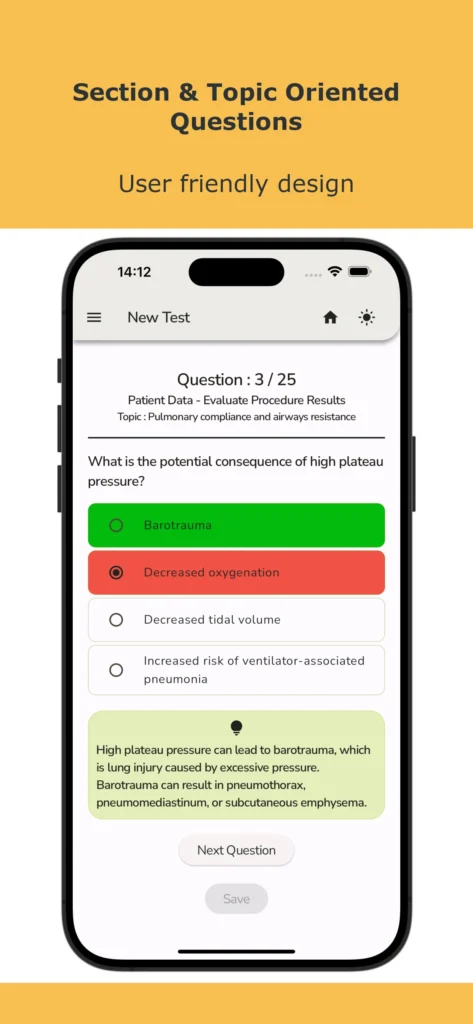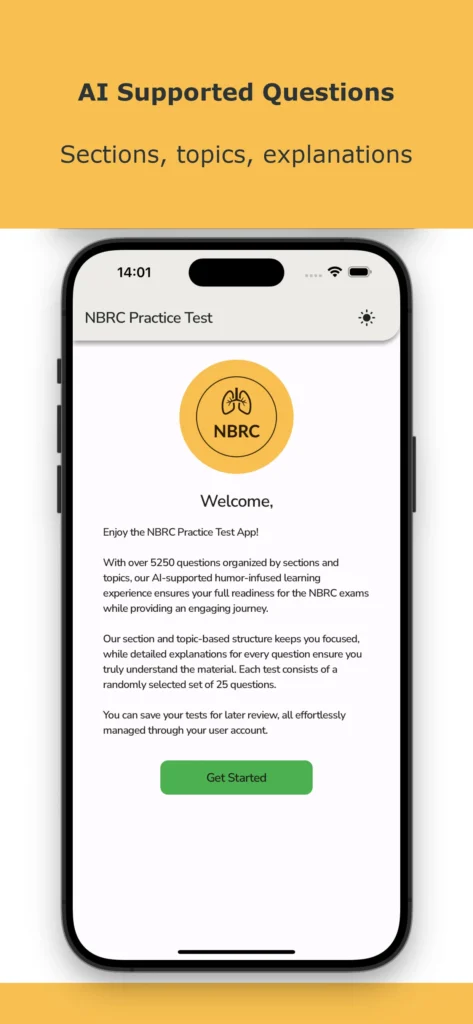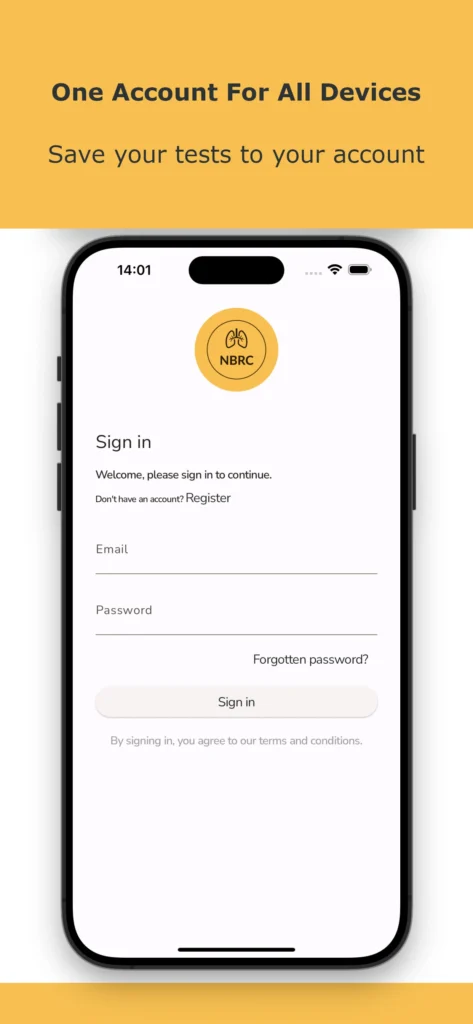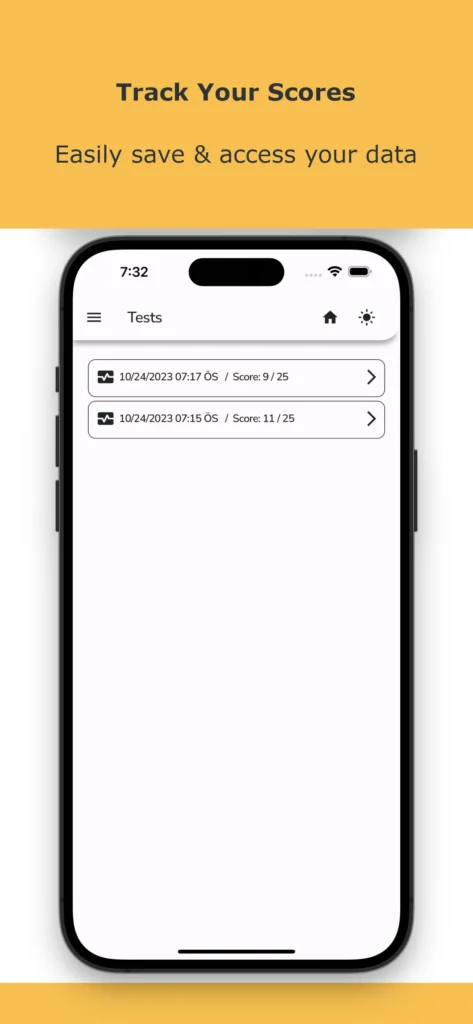Introduction to the NBRC RRT Exam
What is the NBRC RRT Exam?
The NBRC RRT Exam, administered by the National Board for Respiratory Care (NBRC), is a standardized examination that assesses the knowledge and skills of respiratory therapists. It is a requirement for obtaining the Registered Respiratory Therapist (RRT) credential, which is recognized as the standard for respiratory care professionals.
The exam consists of two parts: the Therapist Multiple-Choice (TMC) Examination and the Clinical Simulation Examination (CSE). The TMC exam evaluates the candidate’s knowledge in areas such as patient assessment, equipment handling, and therapeutic procedures. The CSE assesses the candidate’s ability to handle clinical scenarios and make appropriate decisions.
Passing the NBRC RRT Exam is essential for respiratory therapists who want to advance their careers and demonstrate their expertise in the field. It is also a requirement for obtaining state licensure in many states.
What are the Requirements for the NBRC RRT Exam?
In order to be eligible to take the NBRC RRT Exam, candidates must meet certain requirements set by the NBRC. These requirements include:
- Graduation from a respiratory therapy program accredited by the Commission on Accreditation for Respiratory Care (CoARC)
- Successful completion of the Certified Respiratory Therapist (CRT) Exam
- Verification of the candidate’s education and credentials
It is important for candidates to ensure that they meet all the necessary requirements before registering for the exam.
What is the Passing Score for the NBRC RRT Exam?
The passing score for the NBRC RRT Exam is determined by the NBRC and may vary from year to year. The passing score is based on the performance of a reference group of respiratory therapists who have taken the exam. The NBRC uses a standardized scoring method to ensure fairness and consistency in the evaluation process.
It is important for candidates to prepare thoroughly for the exam to increase their chances of achieving a passing score. Utilizing practice exams and study resources can be beneficial in familiarizing oneself with the exam format and content.
How to Prepare for the NBRC RRT Exam?
Preparing for the NBRC RRT Exam requires a comprehensive study plan and access to reliable study resources. Here are some tips to help you prepare:
- Review the exam content outline provided by the NBRC to understand the topics that will be covered in the exam.
- Utilize practice exams and study guides specifically designed for the NBRC RRT Exam. These resources can help you become familiar with the exam format and identify areas where you may need additional study.
- Join study groups or online forums where you can discuss exam topics and share study strategies with other candidates.
- Create a study schedule and allocate dedicated time each day for exam preparation.
- Take advantage of online resources, such as video tutorials and interactive quizzes, to reinforce your understanding of key concepts.
- Simulate exam conditions by taking timed practice exams to improve your time management skills.
- Seek guidance from experienced respiratory therapists or educators who can provide valuable insights and advice.
By following these tips and committing to a structured study plan, you can increase your chances of success on the NBRC RRT Exam.
Understanding the Requirements for the NBRC RRT Exam
What is the NBRC RRT Exam?
The NBRC RRT Exam, or the National Board for Respiratory Care Registered Respiratory Therapist Exam, is a comprehensive examination that assesses the knowledge and skills of respiratory therapists. It is a requirement for obtaining the RRT credential, which is recognized as the standard for respiratory therapy practice in the United States.
The exam consists of two parts: the Therapist Multiple-Choice (TMC) Examination and the Clinical Simulation Examination (CSE). The TMC exam evaluates your knowledge of respiratory therapy theory and practice, while the CSE assesses your ability to apply that knowledge in simulated patient care scenarios.
Requirements for the NBRC RRT Exam
In order to be eligible to take the NBRC RRT Exam, you must meet certain requirements:
- Graduation from a CoARC-accredited respiratory therapy program
- Verification of your education by the NBRC
- Submission of an application and payment of the exam fee
Once you have met these requirements, you will receive an Authorization to Test (ATT) letter from the NBRC, which will allow you to schedule your exam.
Passing Score for the NBRC RRT Exam
The passing score for the NBRC RRT Exam is determined by the NBRC and may vary from year to year. It is important to note that the passing score is not a fixed percentage, but rather a scaled score based on the difficulty of the exam questions.
To increase your chances of passing the exam, it is recommended to thoroughly review the content areas outlined in the NBRC Detailed Content Outline. This will help you identify any areas where you may need additional study and practice.
Renewal and Verification of NBRC RRT License
Once you have successfully passed the NBRC RRT Exam and obtained your RRT credential, it is important to maintain your license by fulfilling the renewal requirements set by the NBRC. These requirements may include continuing education credits and/or the completion of a certain number of clinical practice hours.
If you need to verify your NBRC RRT license for employment or other purposes, you can do so through the NBRC website. Simply enter your RRT pin number, which is provided to you upon passing the exam, to access your verification.
Preparing for the NBRC RRT Exam
Introduction
The NBRC RRT Exam is a crucial step in becoming a Registered Respiratory Therapist (RRT). It is designed to assess your knowledge and skills in the field of respiratory therapy. To help you prepare for this important exam, we have compiled some tips and practice resources that will aid in your success.
Understanding the NBRC RRT Exam
The NBRC RRT Exam is a comprehensive test that covers various aspects of respiratory therapy. It consists of two parts: the Therapist Multiple-Choice (TMC) Exam and the Clinical Simulation Examination (CSE).
The TMC Exam evaluates your knowledge of respiratory therapy theory and principles. It includes questions on patient assessment, equipment management, and therapeutic procedures. The CSE assesses your ability to apply your knowledge and skills in simulated patient scenarios.
Tips for Success
1. Familiarize Yourself with the Exam Format: Understanding the structure and content of the exam is essential for effective preparation. Review the exam blueprint provided by the NBRC to get a clear idea of what to expect.
2. Create a Study Plan: Develop a study schedule that allows you to cover all the necessary topics in a systematic manner. Allocate sufficient time for each subject and make sure to include regular practice tests.
3. Utilize Practice Resources: Practice exams are invaluable tools for exam preparation. They help you identify areas of weakness and provide an opportunity to familiarize yourself with the exam format. Use online resources, such as the NBRC’s official practice exams, to supplement your study materials.
4. Review Key Concepts: Focus on understanding and mastering the key concepts and principles of respiratory therapy. Pay special attention to topics such as patient assessment, mechanical ventilation, and cardiopulmonary diagnostics.
5. Take Advantage of Study Groups: Joining a study group can be beneficial as it allows you to discuss and clarify doubts with fellow students or professionals. Collaborative learning can enhance your understanding of complex topics.
Recommended Practice Resources
1. NBRC Official Practice Exams: The NBRC offers official practice exams that closely resemble the actual exam. These practice tests provide an accurate representation of the exam format and content.
2. Online Question Banks: Several online platforms offer question banks specifically designed for the NBRC RRT Exam. These question banks cover a wide range of topics and provide detailed explanations for each question.
3. Study Guides and Review Books: There are numerous study guides and review books available that provide comprehensive coverage of the exam content. Look for resources that are updated and aligned with the latest exam blueprint.
4. Online Tutorials and Videos: Online tutorials and videos can be helpful in understanding complex concepts and procedures. Look for resources that provide clear explanations and visual demonstrations.
Conclusion
Preparing for the NBRC RRT Exam requires dedication, thorough study, and practice. By following the tips provided and utilizing the recommended practice resources, you can enhance your chances of success. Remember to stay focused, manage your time effectively, and maintain a positive mindset throughout your preparation journey.
Tips for Success on the NBRC RRT Exam
1. Understand the NBRC RRT Exam
The NBRC RRT Exam, administered by the National Board for Respiratory Care (NBRC), is a comprehensive examination that assesses the knowledge and skills of respiratory therapists. It is a requirement for obtaining the Registered Respiratory Therapist (RRT) credential, which is highly valued in the field.
Before diving into your exam preparation, it’s crucial to familiarize yourself with the exam format, content, and requirements. Visit the NBRC website to access the official exam handbook, which provides detailed information about the exam structure, passing score, and exam content outline.
Understanding the exam’s expectations and structure will help you tailor your study plan and focus on the areas that require more attention.
2. Utilize NBRC RRT Practice Exams
Practice exams are invaluable resources for exam preparation. They not only help you gauge your knowledge and identify areas of weakness but also familiarize you with the exam’s format and question types.
Make use of the available NBRC RRT practice exams to simulate the actual testing experience. These practice exams are designed to mirror the content and difficulty level of the real exam, allowing you to assess your readiness and build confidence.
Additionally, practice exams can help you improve your time management skills, as the NBRC RRT Exam is time-limited. By practicing under timed conditions, you can learn to pace yourself and ensure that you complete all sections within the allocated time.
3. Create a Study Plan
Developing a structured study plan is essential for effective exam preparation. Start by identifying your strengths and weaknesses based on the exam content outline. Allocate more time to areas where you need improvement while still reviewing topics you are already proficient in.
Break down your study plan into manageable chunks, setting specific goals for each study session. This approach will help you stay organized and focused, preventing overwhelm and ensuring comprehensive coverage of the exam content.
Consider using study resources such as textbooks, online courses, and study guides to supplement your learning. These resources can provide in-depth explanations, practice questions, and additional study materials to enhance your understanding.
4. Join Study Groups or Seek Peer Support
Studying with others can be highly beneficial, as it allows for knowledge sharing, discussion, and peer support. Consider joining study groups or forming one with fellow respiratory therapy students or colleagues preparing for the NBRC RRT Exam.
Study groups provide an opportunity to clarify doubts, exchange study materials, and learn from others’ perspectives. Collaborative learning can enhance your understanding of complex topics and boost your overall exam preparation.
5. Take Care of Yourself
While preparing for a challenging exam like the NBRC RRT Exam, it’s crucial to prioritize self-care. Take breaks, get enough sleep, eat nutritious meals, and engage in activities that help you relax and destress.
Studying for long hours without breaks can lead to burnout and hinder your ability to retain information effectively. Remember to strike a balance between study time and self-care to optimize your learning and maintain your well-being.
By following these tips and dedicating consistent effort to your exam preparation, you can increase your chances of success on the NBRC RRT Exam and obtain the RRT credential.
Practice Resources for the NBRC RRT Exam
Preparing for the NBRC RRT Exam: Tips and Practice Resources
If you’re planning to take the NBRC RRT (National Board for Respiratory Care Registered Respiratory Therapist) exam, it’s important to have access to the right practice resources. The RRT exam is a comprehensive test that assesses your knowledge and skills in respiratory therapy. To help you prepare effectively, we’ve compiled a list of practice resources that can aid in your exam preparation.
1. NBRC RRT Practice Exams
One of the best ways to prepare for the NBRC RRT exam is to take practice exams. The NBRC offers official practice exams that closely resemble the actual exam in terms of content and format. These practice exams allow you to familiarize yourself with the types of questions you’ll encounter and assess your readiness for the real exam. You can find these practice exams on the NBRC website.
2. Online Practice Tests
In addition to the official NBRC practice exams, there are several online platforms that offer practice tests specifically designed for the RRT exam. These online practice tests provide a simulated testing environment and cover all the key topics and concepts that you need to know for the exam. Some popular online platforms for RRT practice tests include Quizlet, Exam Edge, and BoardVitals.
3. Study Guides and Review Books
Study guides and review books are valuable resources that can help you consolidate your knowledge and focus on the important topics for the RRT exam. These resources often provide detailed explanations of key concepts, practice questions, and helpful tips for test-taking. Some recommended study guides for the NBRC RRT exam include ‘Respiratory Care Exam Review’ by Gary Persing and ‘RRT Exam Secrets Study Guide’ by Mometrix Test Preparation.
4. Online Video Tutorials
Visual learners may find online video tutorials to be a helpful resource for studying for the RRT exam. Platforms like YouTube offer a wide range of video tutorials that cover various topics in respiratory therapy. These tutorials can provide a more engaging and interactive way to learn and understand complex concepts. Look for channels or videos specifically focused on RRT exam preparation.
5. Peer Discussion Forums
Engaging in discussions with fellow RRT exam candidates can be a valuable way to enhance your understanding of different topics and gain insights from others’ experiences. Joining online forums or social media groups dedicated to respiratory therapy or the NBRC RRT exam can provide a platform for asking questions, sharing study tips, and accessing additional resources recommended by other candidates.
Conclusion
Preparing for the NBRC RRT exam requires a comprehensive study plan and access to the right practice resources. By utilizing practice exams, online tests, study guides, video tutorials, and peer discussion forums, you can enhance your knowledge and improve your chances of success on the exam. Remember to allocate sufficient time for studying, practice regularly, and seek clarification on any topics you find challenging. Good luck with your exam preparation!
Conclusion
In conclusion, preparing for the NBRC RRT Exam requires dedication, practice, and access to reliable resources. By utilizing practice exams, studying the NBRC requirements, and verifying your license, you can increase your chances of success. Remember to review the passing score for the NBRC RRT Exam and renew your NBRC RRT pin as needed. Take advantage of free practice exams and practice tests available online, such as those on Quizlet. Additionally, consider using resources like the NBRC CSE practice exam and NBRC TMC practice exam to further enhance your preparation. Stay focused, practice diligently, and you’ll be well on your way to achieving your goal of becoming a Registered Respiratory Therapist (RRT) through the NBRC.








